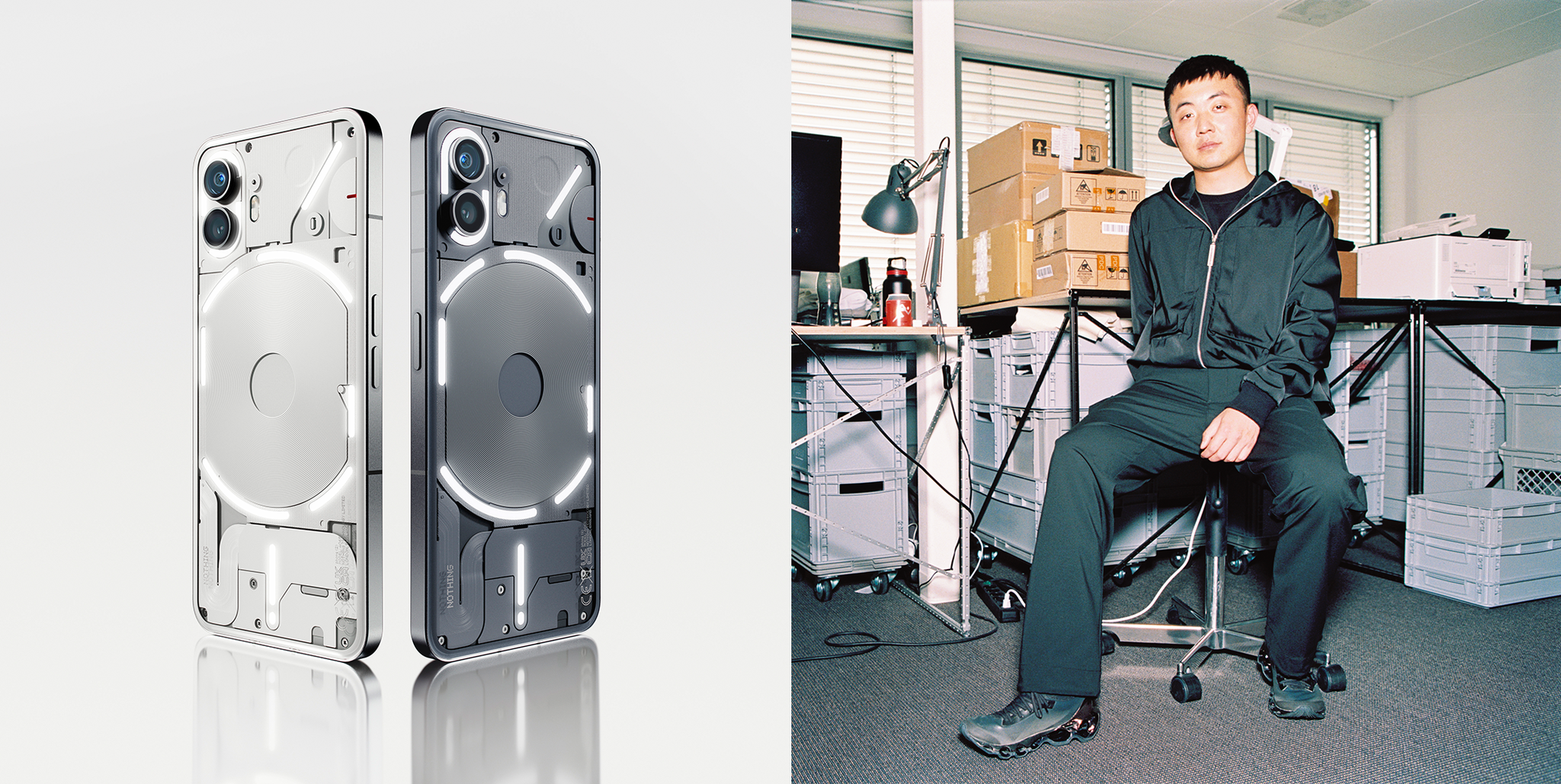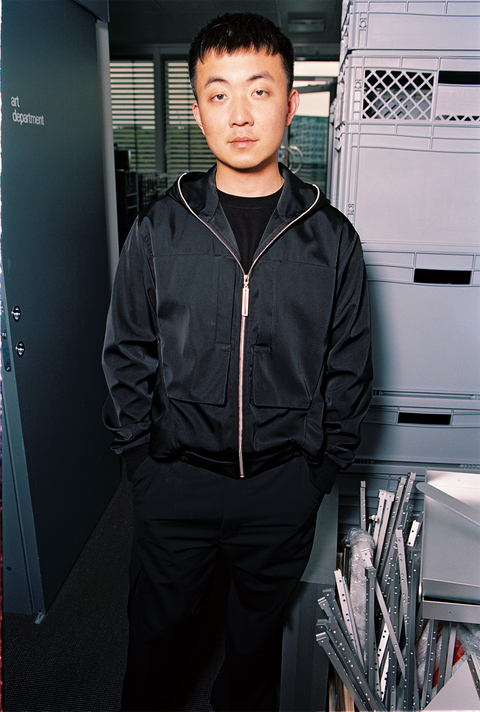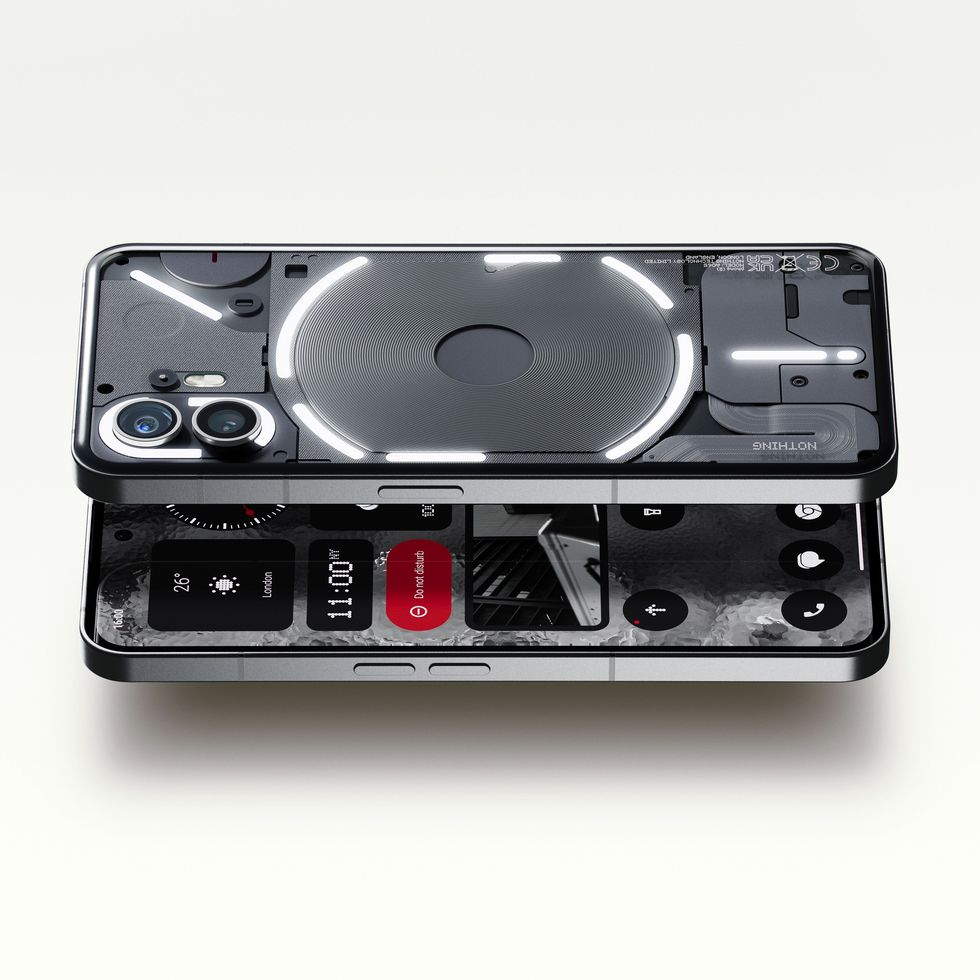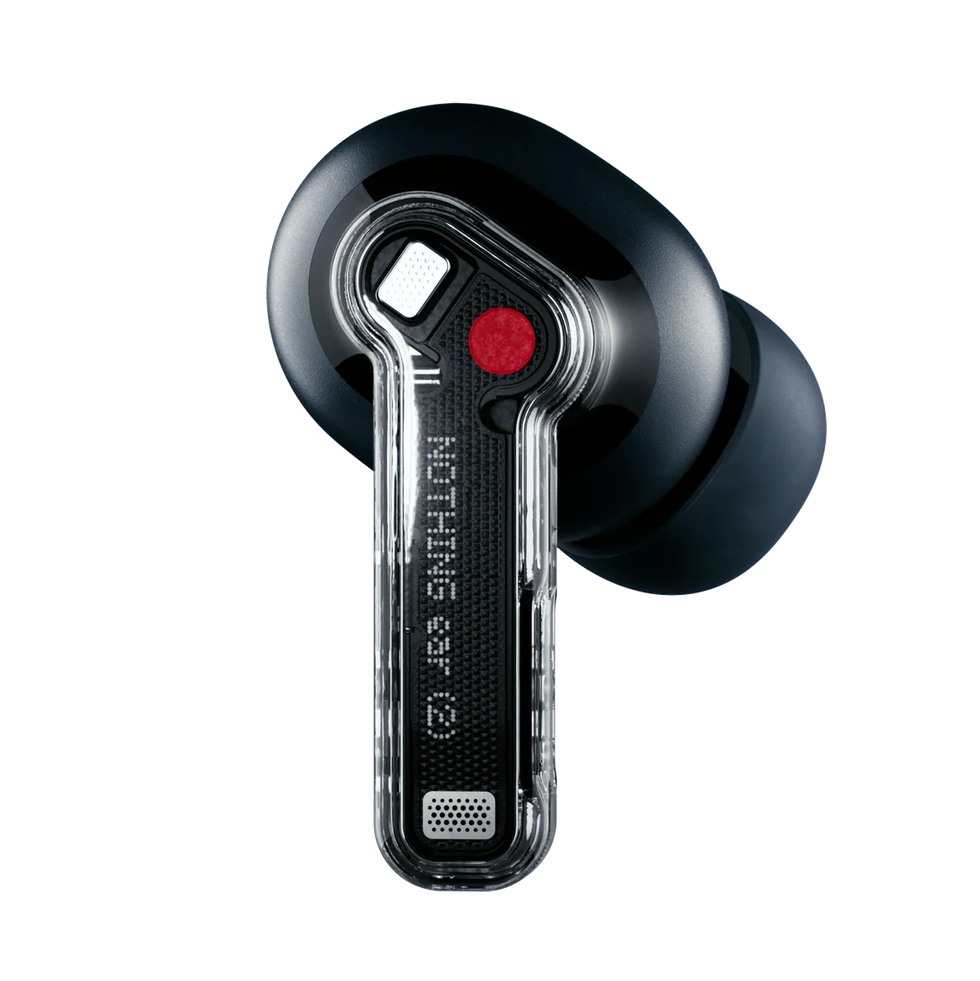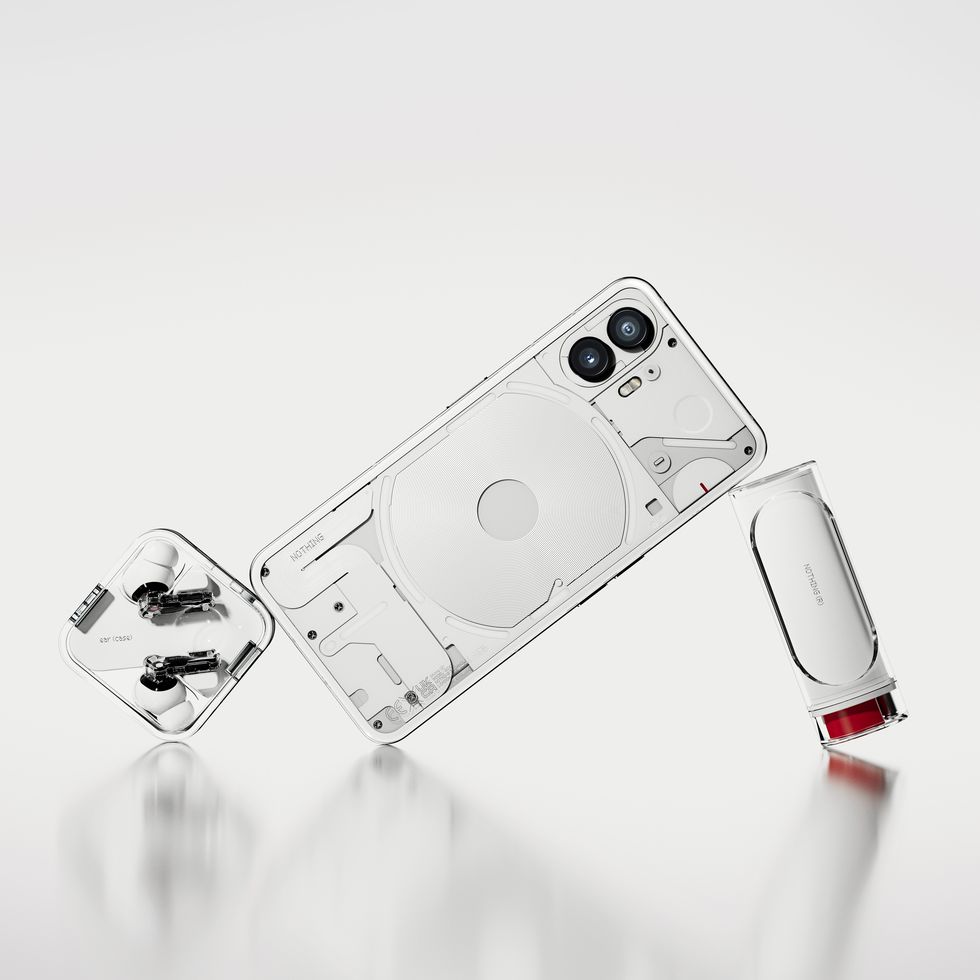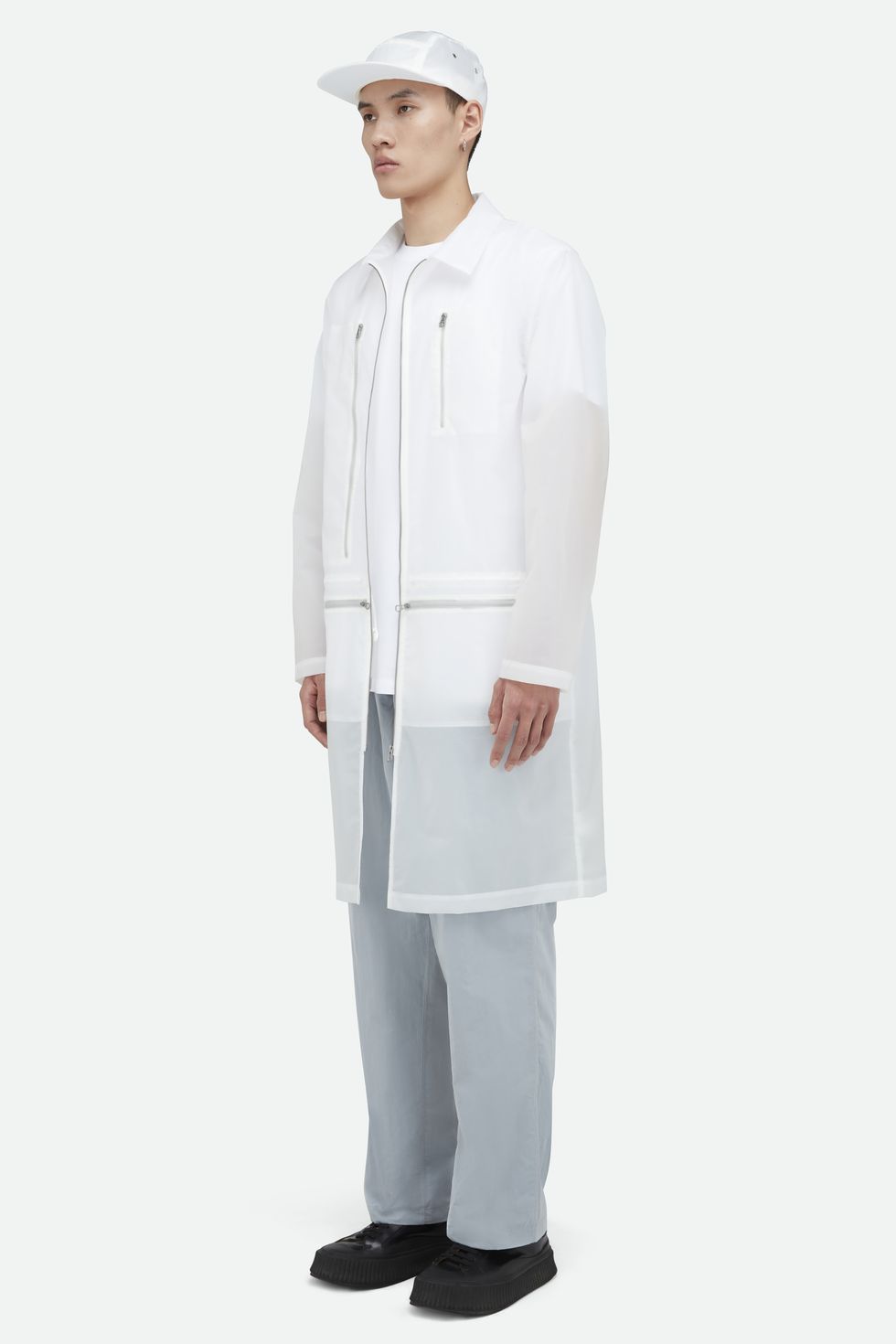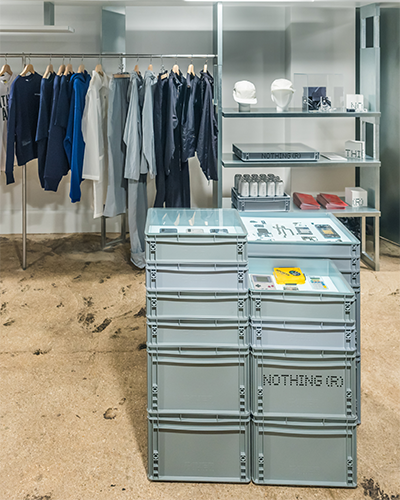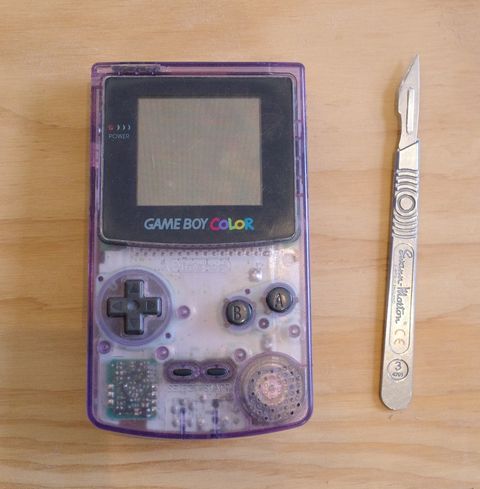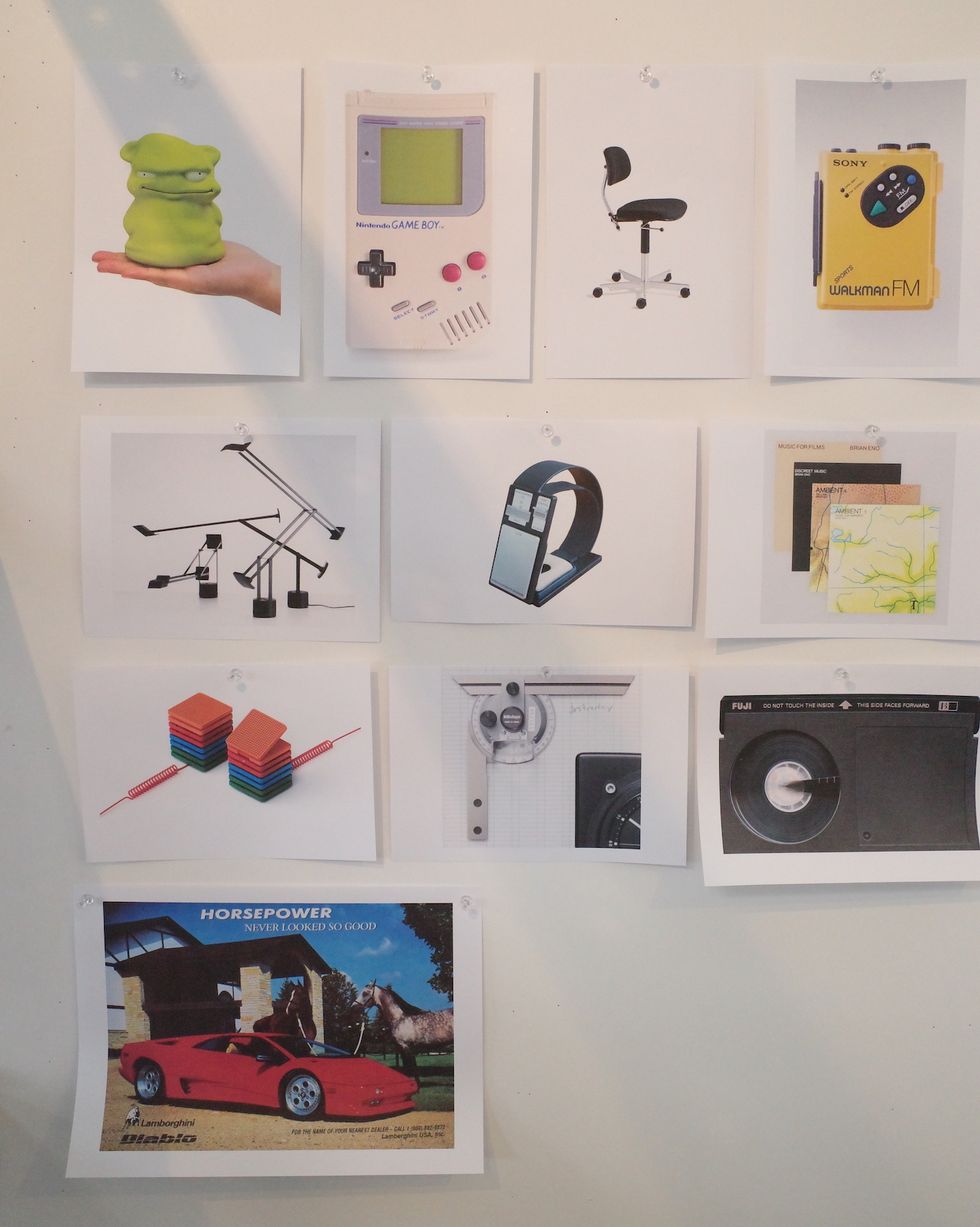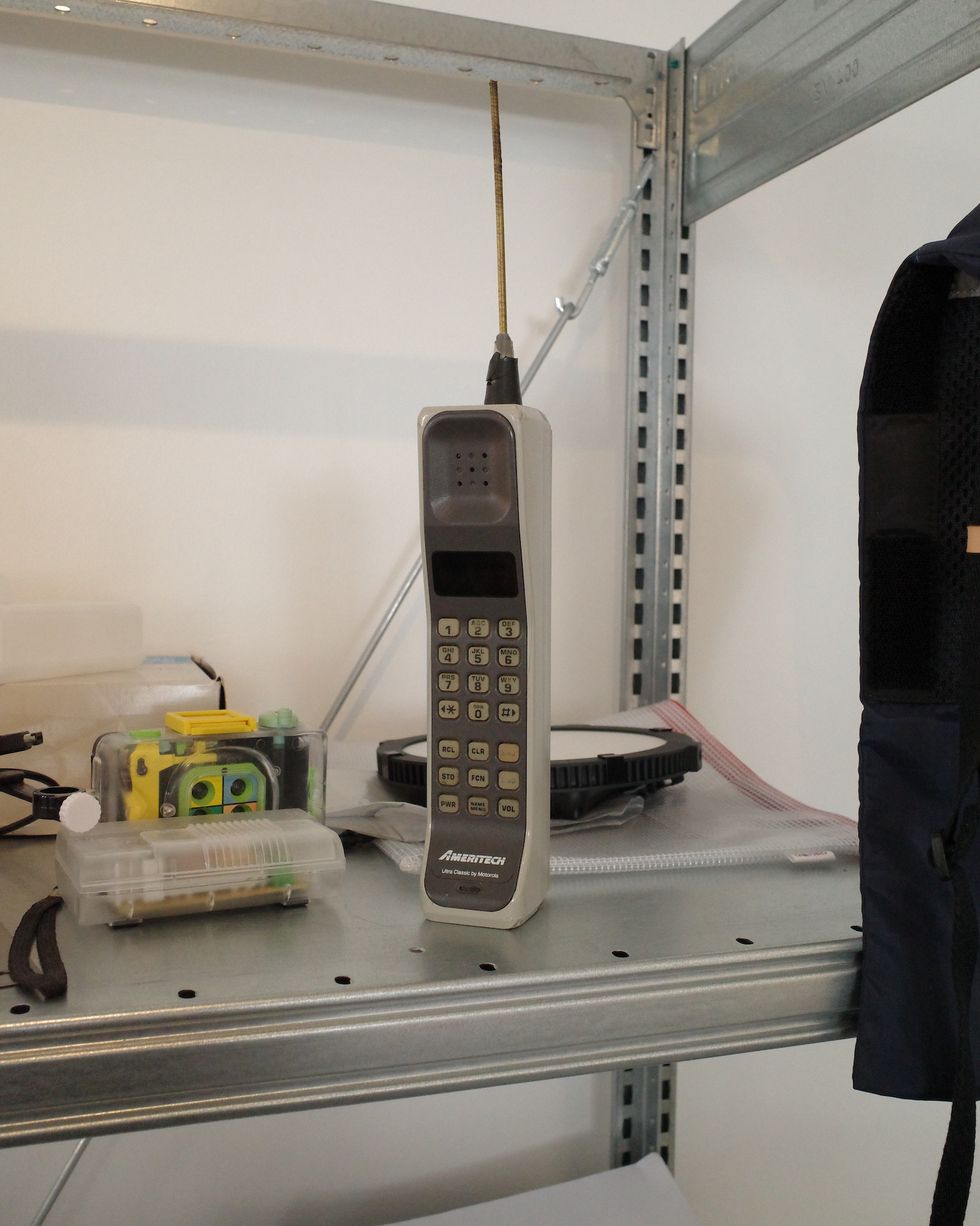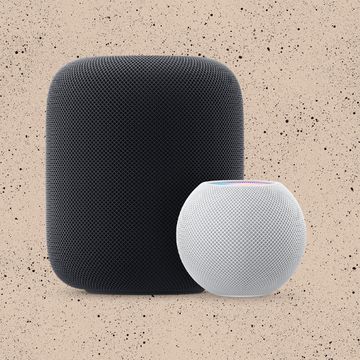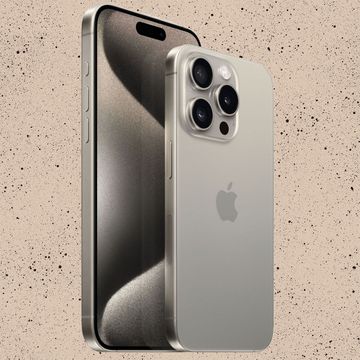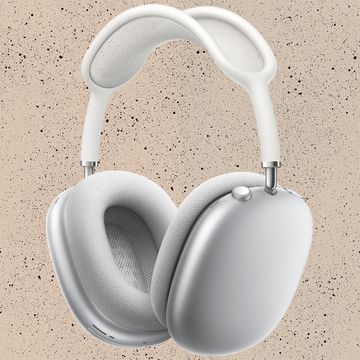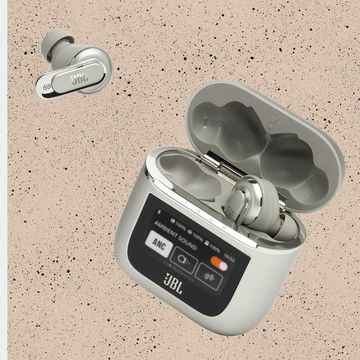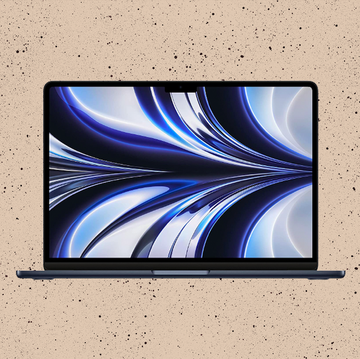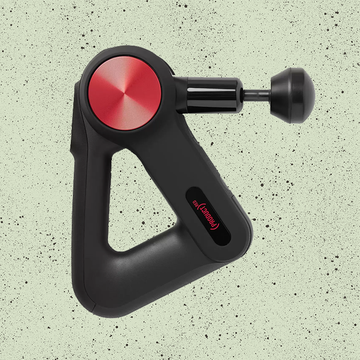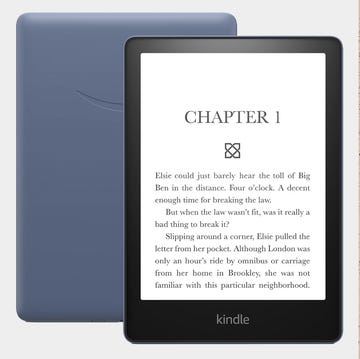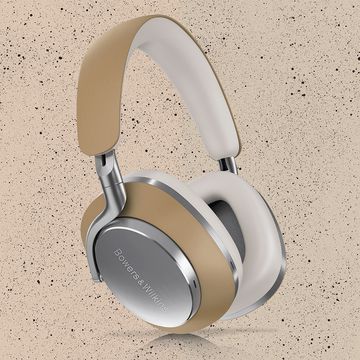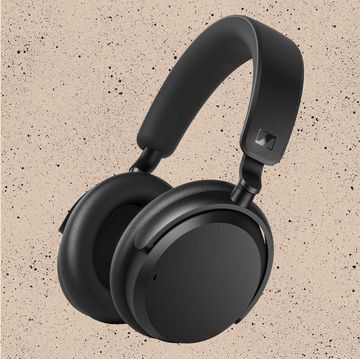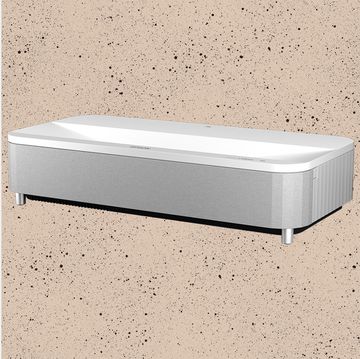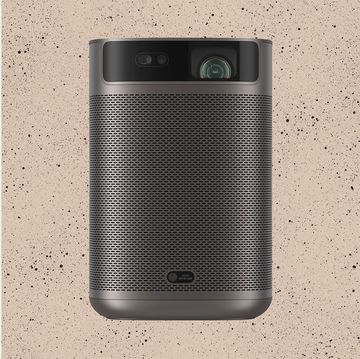It’s Thursday morning on Soho’s Peter Street and the hypebeasts have returned to their pen, cordoned outside the Supreme store by traffic cones and hazard tape. ‘Drop Day’ is a big deal in this thin corridor of London’s West End, where queues of streetwear heads congregate on a weekly basis to clear out the brand’s new stock. Next door, two shop assistants stare out of the glassy façade of a clean white cube at the line of teenagers tetchily swiping at their iPhones. The pair behind the pane work for Nothing, a young tech outfit that moved in at the tail-end of last year, hoping to capture the street’s clout and attention. Basically, to make Nothing something worth waiting for.
It seems like a bad idea – or at least a misguided one – to create a smartphone company from scratch. The western world practically orbits around Apple at this point. More than two billion handsets sold since 2007, an empire out of Cupertino. The rest of the titanium pie is carved up by Samsung, Google, Oppo and Huawei. LG and HTC crumbled, even the might of Amazon (RIP Fire) barely made a dent. Who’s going to shift their loyalty at this stage?
But there is an ambitious young founder, and a belief that people might be a bit sick of the Silicon Valley stranglehold and that, maybe, there’s a market for something different.
The man who believes he can upend the tech industry mostly works out of an office in Farringdon, Central London. I share the lift up with two young members of staff who remove matching Nothing Ear (2) headphones in clear plastic (RRP: £129). One of them watched every single Mission Impossible film over the weekend, which seems like quite an impressive feat of endurance. The office is big and modern and pale in a WeWork sort of way, the steady tapping of fingers on keyboards the only sound to break the space’s concentrated silence. I’m ushered into a glass meeting room and introduced to Carl Pei, the company’s 34-year-old co-founder and de facto face of. He’s wearing Birkenstocks with white socks; cropped black hair framing a boyish face.
“For us, the north star was about making tech fun again,” says Pei as an early introduction to the company mantra, as smooth as the curved glass of the Nothing Phone (2) (RRP: £579 - £699). Pei was born in Beijing, but grew up in Stockholm, where he spent his childhood tinkering with computers and building websites, an IT teacher who worked at IBM sparking an early interest in technology. “Sweden might be small, but we have a lot of tech companies that came out at that time,” says Pei. “Spotify and Klarna for example, so being young and being able to access cutting edge stuff from a young age was very inspiring.”
Before starting Nothing towards the end of 2020, Pei was known as the precocious co-founder of the Chinese smartphone company OnePlus. The business sold millions of mid-priced phones, mostly to the Asian market, and enjoyed a degree of success in America and Europe. Pei eventually left to start his own thing. He raised more than $200m in funding for Nothing. High-profile investors include Tony Fadell, a former Apple employee who’s listed as the inventor of the iPod and the co-inventor of the iPhone, YouTube impresario Casey Neistat, Twitch co-founder Kevin Lin, co-founder and CEO of Reddit Steve Huffman… and The Swedish House Mafia.
“When I was younger, tech products felt really innovative; this idea that the world was being pushed forward by these companies, but now it feels like they’re playing it very safe,” says Pei, who has positioned himself as a new sort of ‘move fast and break things’ innovator… a 2023 Steve Jobs in wide-cut trousers. Until recently, a tech founder was a position of power and status, a captain of industry with legitimate cultural cache. Today, the public perception is more one of idiots with angel investment. The New York Times has called it ‘The end of faking it in Silicon Valley.’ Pei has a reputation for fan interaction and a certain candour. He’s happy to engage in debates with customers and dissect reviews on YouTube.
“It [the tech industry] is becoming more for making money rather than innovating,” says Pei. “We’re treated like cattle by tech companies now. Apple, for example, has created an ecosystem that is closed off, they’re trying to maximise your time spent on their products, so it alters your psychology over time. I don’t think people are becoming smarter, stuck on these loops on social media. We’re trying to give power back to the hands of consumers.”
“It’s going to be very difficult, and it’s going to be a long journey, but if there’s anyone who has a chance of succeeding then it’s going to be this team.”
So the phone looks like a phone. There’s a 6.7 inch OLED screen, a Snapdragon 8+ Gen processor, a custom Android OS, a 50mp camera, a curved aluminium frame and a translucent glass back fitted with hundreds of LED lights that the company refers to as ‘glyphs,’ allowing users to create customisable light patterns that can sync with notifications, alerts, music and calls. The headphones are engineered by the trendy Hi-Fi brand Teenage Engineering, another one of Nothing’s founding partners.
Pei pulls out his own phone and shows me how a glyph will slowly count down to indicate the arrival of an Uber, or a delivery driver, which is quite cool. The idea is that it will prevent you from mindlessly checking your notifications every few minutes. Icons on the screen are in black and white, a design decision that Pei and his engineers hope will make using the phone more ‘intentional.’
Alongside the phone and the earphones, Nothing has started to branch out into the nebulous world of lifestyle—world building. Alongside the minimalist London boutique, there’s Nothing Beer (5.1%), brewed by Freetime Beer Co in Wales, and Nothing Apparel, a “quality-driven” capsule workwear collection that launched at Dover Street Market with the tagline: “a uniform for creatives". The first drop, a translucent cap and lab coat inspired by the factory floor of computer manufacturer IBM in the 1970s, arrived in early December.
At last count, during the launch of the company’s second phone in July, Pei estimates that they’ve sold two million phones and sets of headphones in two years. “Good for a startup,” he says, “but a drop in the ocean for a giant. We rate ourselves 6/10.” Last year the debut phone was named as one of TIME’S best inventions of 2022. “The first 18 months of Nothing were almost impossible,” says Pei.
“There are more than 400 components in a smartphone and there’s one component missing… you can’t make a full phone.”
“How would the world be different if we succeeded?” He says with the confident delivery of someone who can work a conference hall. “I think the tech industry would be more fun, and more inspiring. We made our first phone knowing that we were a young company and team and we didn’t really have the resources to make our own tech, Microsoft and Apple have their own tech, but for the first we focused on design… that was the fastest way to differentiate ourselves.”
On a sunny afternoon in Kings Cross, I visit the Nothing design studio, where the high concept business of building out a modern tech brand takes place. Big windows, exposed metal, lots of white t-shirts. I’m given the tour by design director Adam Bates, who previously worked at Dyson. “It took us a long time to settle on a coffee machine,” says Bates, “too many designers in one room!”
I’m given the tour. There’s a retro keyboard that’s used for conjuring up sound effects and notifications, lasers and 3D printers that can accurately render models, prototypes and new parts, and a whole phone disassembled on a tray, along with book shelves stacked with titles on art and industrial design. A transparent Gameboy Color is placed off to one side. “We’re sort of obsessed with that era of being able to see the interior workings of technology,” says Bates. “That awe at how something comes together.”
If Pei has his way, smartphones are just a stepping stone towards a loftier technological ideal. “Our long-term vision is to make tech that fades away,” he says. “It’s a thin line between utopia and dystopia, but over the next 10 years, we’ll still be using smartphones, but in 20… tech will become more and more embedded. It will be in the furniture, the spaces we’re in, or in our bodies.
“It will feel more and more like… nothing.”
